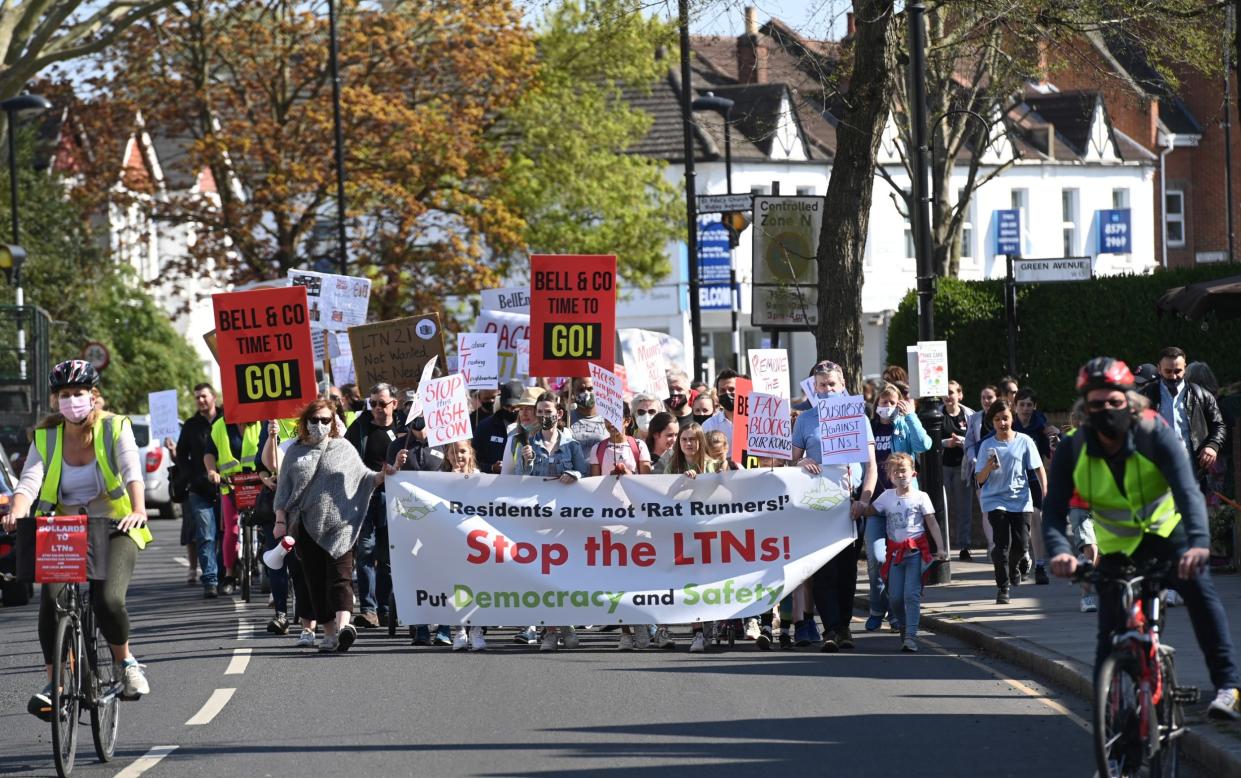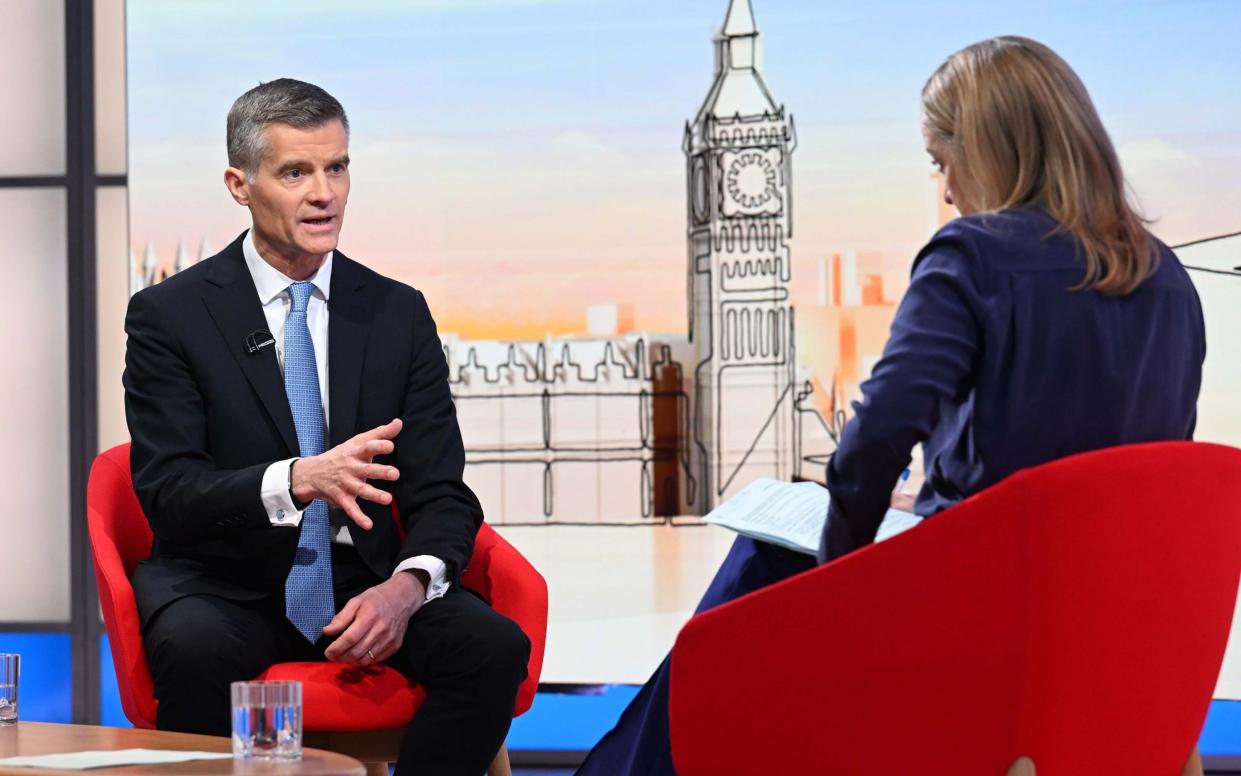Councils ignoring LTN concerns could face funding cuts

Councils that ignore concerns over low-traffic neighbourhoods (LTNs) could face funding cuts, the Transport Secretary has suggested.
Mark Harper signalled that the Government may reconsider funding settlements for local authorities that fail to properly consult on or consider the impact of active travel schemes.
His comments came as the Department for Transport published draft guidance stating that authorities must gain support from residents, local businesses and emergency services before introducing LTNs.
On Saturday, The Telegraph revealed that councils ignoring local opposition to LTNs and 20mph zones could be stripped of their powers to issue fines.
Speaking on the BBC’s Sunday with Laura Kuenssberg, Mr Harper said his concerns related to schemes “where councils haven’t taken their communities with them”.
“This is about sensible government, this is about making sure that communities are properly listened to,” he said. “Where a local council is properly listening to its local community, does its consultation properly – and we’ve set out some examples in our statutory guidance about how we go about doing that – no one has a problem.
“But I think it should be possible for people who cycle, walk and use public transport and drivers to sensibly co-exist.”

He added: “There are examples during the pandemic where there was no consultation, where things were done for ideological reasons. I think what we’re proposing is very sensible.
“If councils listen to our guidance, that’ll be fine. If they don’t, we’ll have to think about other measures – about funding and things like that – in the future. But I think there are sensible proposals that will be welcomed by people across the country.”
The report forms part of what the Government has called its “plan for motorists”, and one line cites fears among emergency services that LTNs risk lives by slowing first responders.
“[Emergency services] reported that the implementation of LTNs has caused certain hindrances to emergency services such as delays due to physical barriers and lack of access keys,” it reads. “They stress this could potentially risk lives because this adds precious seconds and minutes when seconds do really count.”
Mr Harper has previously said that LTNs have set “people against each other” and risk putting voters off the Government’s targets of achieving net zero carbon emissions by 2050.
LTNs were introduced as part of a wider range of walking and cycling initiatives shortly after the Covid pandemic began.
Grant Shapps, the former transport secretary, oversaw a £2 billion active travel fund, but a number of schemes were introduced by councils without full consultation with local residents.
In September last year, Labour-run Newcastle City Council reversed a number of road closures in the city after a report said that the LTN had pushed traffic onto other residential roads.
In a separate interview on The Camilla Tominey Show on GB News, Mr Harper admitted that he could not recall how many electric vehicle charging points there were in the UK.
“Well, the point about charging points is the number grew by 43 per cent last year – it’s increasing every day of the week,” he said. “I don’t know the precise number.
“But we’re going to make sure there are going to be an increasing number as we see an increased number of cars on the roads, and most people charge at home and that will continue to be the case.”


